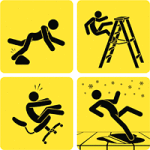 Jim Cline and Erica Shelley Nelson
Jim Cline and Erica Shelley Nelson
We have often said, “Knowledge is Power” and seemingly nowhere is that more true than in connection with the rights you and your members have when they are injured and disabled. Our experience in representing public safety labor organizations throughout the state is that there is a shortage of thorough or even accurate information about the rights of injured or disabled officers.
We are closing that gap in information with the upcoming release of our book “Helping the Injured or Disabled Member: A Guidebook for the Washington Law Enforcement Union Representative.” We have a targeted release date for this book of September 1st. Because of the importance of this topic, we are following it up with in-person trainings at different locations throughout the state and will be providing complimentary copies of the Guidebook to union representatives. More on that training and book release to follow.
The Guidebook covers a range of topics including the “alphabet soup of laws that apply to injured or disabled members: the ADA, WLAD, FMLA, PDA, IIA, WISHA, LEOFF Supplement, Social Security, PSOBA, and your CBA. We discuss each of these various laws and how they interrelate to each other. The scope of the guidebook extends to disability discrimination laws, workers compensation, and the right of employees to bring civil lawsuits.
We have consistently found a lack of information on many of those topics, and often what people “know” (including management representatives) is simply incorrect. For example, many LEOFF II personnel (and even their union representatives) are unaware of their ability to bring civil suits against the employer when the employer’s negligence has caused an injury.
Just last week our firm was involved in filing a legal claim for a Seattle Police officer involved in a head injury as a consequence of the City’s May Day Protests. The claim is that the City’s failure to provide proper head protection and failure to issue a prompt dispersal order endangered the officers.
A reporter covering the story reacted “I don’t think I’ve ever heard about an officer suing his own department for this kind of thing.” Unfortunately, even many LEOFF I officers are unaware of their ability to bring a civil claim concerning safety violations. It is in the face of that lack of information that we are moving forward to better inform public safety employees throughout the state.



